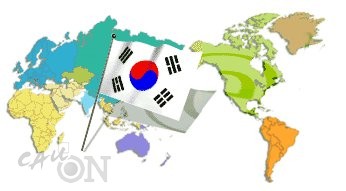
‘If there’s no Kimchi, how could we have a meal? ~’
This is a lyric from a song by Jeong, Gwang-tae in the 1970s. He tells us that Kimchi is our traditional food and we should take pride in that. Enjoying Kimchi with our meals is a matter of course while living in Korea. These public promotions keep our traditional food culture in good condition. However, the emergence of multinational corporations and the influences of globalization are changing our food culture. Moreover, with this change, our preferred tastes are changing. In this situation, it is curious whether Koreans can live without Kimchi.
Lately, a Korean TV show called ‘Living without Made in China’ was of interest to people. These days, the majority of clothes, food, and IT products are made in China. The TV program showed that if Koreans lived entirely without Chinese products, many Koreans’ living conditions would be an inconvenience. There is now a ‘China Free’ campaign, which encourages Koreans to live without Chinese products. However, most participants gave up on the campaign. As in this case, our lives are closely connected with imported products. In the same way, several big countries have an affect on every part of international food culture.
In 1989, although the borders between countries seemed to be disappearing with the spread of globalization, however recently the ideas of nationalism are growing. For example in 2001, the United States used nationalism feelings to promote their goods after the aftermath of the 9/11 New York terrorist attacks. As you can see, nationalism has appeared with economical aspects, and for some countries these economies stands on the population’s observation of their countries’ imagine in their key industries for profit. This nationalism is being disseminated to a global village. However, economic liberalist and ideologists criticize nationalism, because of pressures and threats to the flow of global economies and the extensions of protective trade policies.
Gradually, each country has generated a new culture with ethnic characteristics. For example, Korea has informed Koreans about the benefits and traditions of Kimchi, and why it is important for Koreans to eat Kimchi dutifully. In the U.S, there has recently been a new diet craze called the ‘100 mile diet’. The ‘100 mile diet’ campaign spread throughout the whole nation. The ‘100 mile diet’ campaign asks Americans to drive within 100 mile from their residential area to buy or eat locally grown foods. It is a nature-friendly movement. This year, about 60 people took part in the ‘100 mile diet’ in the New York City area. The ‘100 mile diet’ campaign usually begins in September. The reason is that New York’s harvest season is in September and Americans can get a relatively wide variety of foods. A scholar of molecular biology is leading this movement. “Most participants are dissatisfied at the condition and limits to the varieties of food during the first week, but they recognize the truth that this movement is healthful for themselves and the Earth”, he said. He explained, “Participants recognize that fresh agricultural products are good for their health. This movement is the first step to reducing environmental pollution. Most environmental pollution happens during the transportation of food.”
Doctors and environmentalist have recommended buying homegrown food and our agricultural products suit our constitution well. Japan is also leading the annex of consumption for homegrown goods by practicing this life style themselves. They call this ‘Ji San Ji So’, which means consume the agricultural products produced within the same region. It is similar to the Korean concept that domestic farm products are the best. Americans also use a term, “You are what you eat”. ‘The domestic farm products are the best.’ In this way, people get active in the protection of their agricultural products. This is not only for guarding the safety of our tables that could be attacked by imported goods, but should also positively protect our agriculture and renew our understanding of what it takes to keeping up a farm village. The farming village’s energy represents our national energy, and holds down an important part of our traditional culture.

